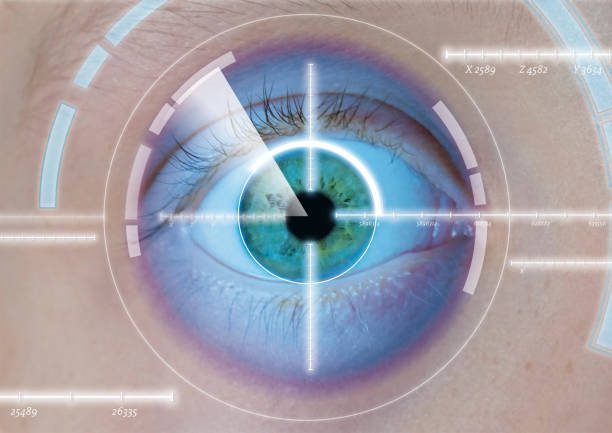ICLs, representing implantable contact lenses, stand as a cutting-edge solution for vision correction, offering a viable alternative to traditional glasses and contact lenses. Despite their benefits, prospective patients remain apprehensive about the potential discomfort associated with ICL surgery. This paper aims to conduct an in-depth examination of the pain experienced with ICLs, covering preoperative, intraoperative, and postoperative factors influencing pain perception. Furthermore, it will explore various pain management strategies while offering guidance to individuals considering this procedure. For expert consultation and guidance on ICLs, reach out to Dubai’s implantable lens specialists today.
Understanding Implantable Contact Lenses
ICLs are small, prescription lenses. Doctors implant them in the eye. They fix refractive errors like myopia, hyperopia, and astigmatism. Unlike traditional contact lenses, which sit on the eye’s surface. ICLs sit within the eye, behind the iris. The surgery involves making a small incision. This is to insert the lens. It is usually done under local anesthesia. ICLs offer many advantages. They improve vision and reduce dry eye risk compared to standard contact lenses. But, they also have drawbacks such as the need for surgery and its risks.
Pain Perception in Implantable Contact Lens Surgery
Preoperative pain expectations and anxiety:
Many patients feel anxious before ICL surgery. They expect discomfort during the procedure and recovery. Clear communication is essential. It must happen between patients and healthcare providers. It is about pain management and expectations. This communication is key for reducing preoperative anxiety.
Intraoperative sensations and discomfort:
During ICL surgery, patients may feel pressure or slight discomfort. This happens as the lens is put into the eye. However, the procedure is typically performed under local anesthesia, minimizing pain perception. Factors such as surgical technique and individual pain threshold can influence intraoperative discomfort.
Postoperative pain experiences and recovery period:
After ICL surgery, patients may feel some discomfort. This can include minor pain, irritation, and a foreign body feeling. These symptoms are brief. They can be managed with pain meds and eye drops. However, dry eye and inflammation can make the recovery longer. They also add to discomfort.
Factors influencing pain perception:
Several factors cause pain perception to vary. They affect people having ICL surgery. These include the surgeon’s skill. Also, the patient’s pain threshold and tolerance matter. And, the presence of complications, like dry eye syndrome and inflammation, matters. A thorough pre-surgery exam and patient education are vital. They set realistic expectations and improve pain plans.
Pain Management Strategies for Implantable Contact Lens Patients
Preoperative counseling and education:
Good preoperative counseling and education are crucial. They prepare patients for ICL surgery and manage their pain and discomfort expectations. It can help to provide info about the surgery. This includes the procedure, post-surgery symptoms, and pain management options. Doing so can reduce anxiety and ensure informed choices.
Anesthesia options during surgery:
Local anesthesia is commonly used during ICL surgery to minimize intraoperative discomfort. However, other anesthesia options may be used. These include sedation or topical anesthetics. They may be considered for patients with high anxiety or pain sensitivity.
Postoperative pain relief medications and care instructions:
After ICL surgery, doctors may prescribe pain relief medications. These could include nonsteroidal anti-inflammatory drugs (NSAIDs) or analgesics. They help to reduce pain. In addition, following postoperative care instructions is also important. This includes using prescribed eye drops. Also, avoiding activities that may worsen symptoms. These steps are needed for healing and reducing pain.
Alternative therapies and adjunctive treatments for pain management:
In addition to regular pain relief drugs. Alternative therapies, like acupuncture and cold compresses, may also help. They can provide extra relief from postoperative discomfort. Eye doctors and pain specialists can work together. They can tailor plans to meet each patient’s unique needs.
Psychological interventions for coping with pain and anxiety:
Therapies like CBT and relaxation exercises can help. They reduce pain perception and anxiety from ICL surgery. Adding psychological support to preoperative preparation and postoperative care can improve patient comfort. It can also boost patient satisfaction with the procedure.
Patient Satisfaction and Quality of Life After Implantable Contact Lens Surgery
Assessing pain outcomes and patient reports is essential. They are key for evaluating satisfaction and quality of life after ICL surgery. Discomfort is common right after surgery. But, most patients report big improvements in vision and satisfaction with their results. We need long-term studies. They will study how pain perception affects life quality. They will also study how it affects vision after ICL surgery.
Complications and Risks Associated with Implantable Contact Lenses
Surgery has risks and complications. These exist despite advances in techniques and tech. These include infection, inflammation, high eye pressure, and lens dislocation. Complications can make post-surgery pain worse. They may require more treatment or revision surgery. You need to minimize risks and manage complications. This is essential for helping patients and reducing postoperative discomfort.
Recommendations for Patients Considering Implantable Contact Lenses
Patients must have a thorough meeting with a qualified ophthalmologist. This is especially true for those considering ICL surgery. During the consultation, patients should get full information. They should learn about the risks, benefits, and potential pain of the procedure. We should talk about what pain to expect during and after surgery. We should also discuss ways to manage it and their side effects. Patients should also be encouraged to try other vision correction methods. They should choose based on their needs and preferences. This will ensure their choices are informed and give the best results.
Related Article: Is ICL better than LASIK?
Conclusion
To understand the pain of lens surgery, we need a multifaceted approach. It should cover pre-surgery, during surgery, and after surgery. Healthcare providers can improve patient comfort and satisfaction with ICL surgery. They can do this by addressing factors that affect pain. They can use effective pain management and provide patient education. More research is needed. It should aim to improve pain management and reduce complications. This will also improve outcomes. It will improve the quality of life for people getting this new vision correction.
Expert Consultation for Implantable Contact Lenses and Pain Management
For personalized advice on contact lenses, pain management, and vision correction, contact the best eye consultants in Dubai today. They offer consultations to help you make informed decisions about your eye care needs. Our team is devoted to providing exceptional care and will support you through your vision correction journey. Contact us now to schedule your consultation and experience the difference of having the best eye consultants by your side.
Related Article: Who is not suitable for ICL surgery?
Frequently Asked Questions
How long does it take to recover from ICL surgery?
Most patients can return to normal activities within a few days. This is after implantable contact lens surgery. Full recovery usually takes about one to two weeks. During this time, discomfort and visual changes may occur but get better.
What are the risks associated with ICL surgery?
The surgery has risks. These include infection, inflammation, high eye pressure, and lens dislocation. However, these problems are rare. They can be reduced with good pre-surgery evaluation and post-surgery care.
Also read: How Many Days of Rest Are Required After ICL Surgery?
Can ICL surgery correct all refractive errors?
Implantable contact lenses work for fixing high levels of nearsightedness, farsightedness, and astigmatism. However, surgery candidacy depends on many factors. These include eye health and cornea thickness.
Is ICL surgery reversible?
The surgery to implant contact lenses is reversible. The lenses can be removed or replaced if needed. However, doing the reverse may mean more surgery. It also has its own risks and things to consider.
Related Article: How long do implantable contact lenses last?











